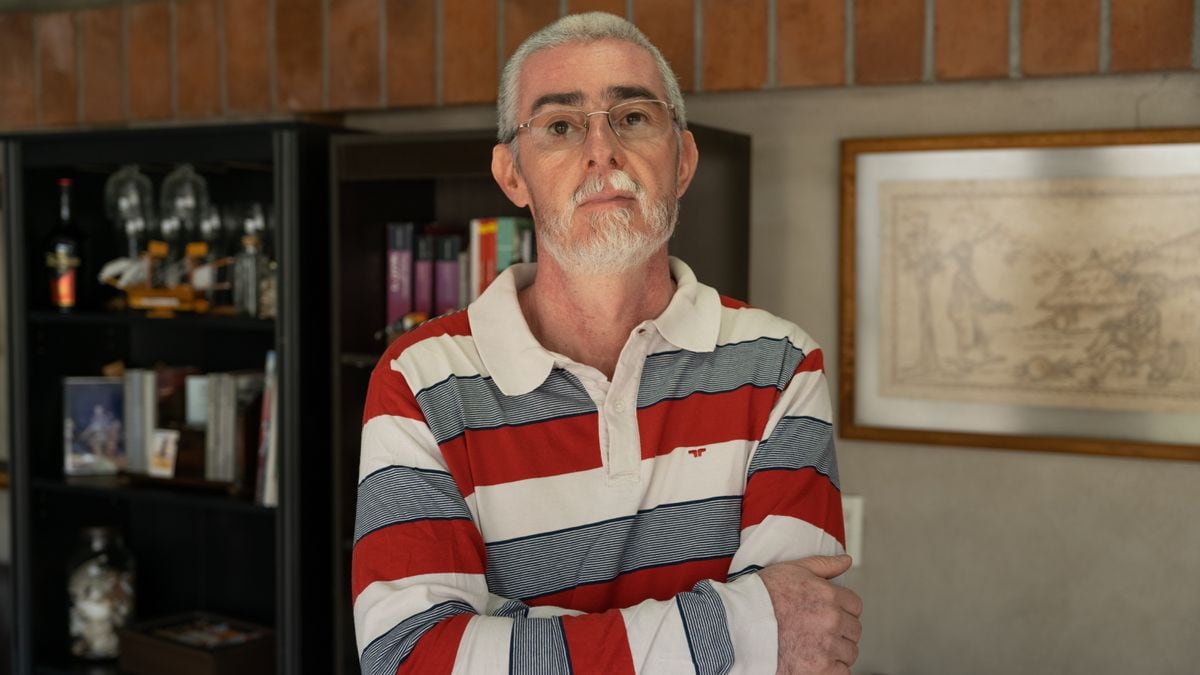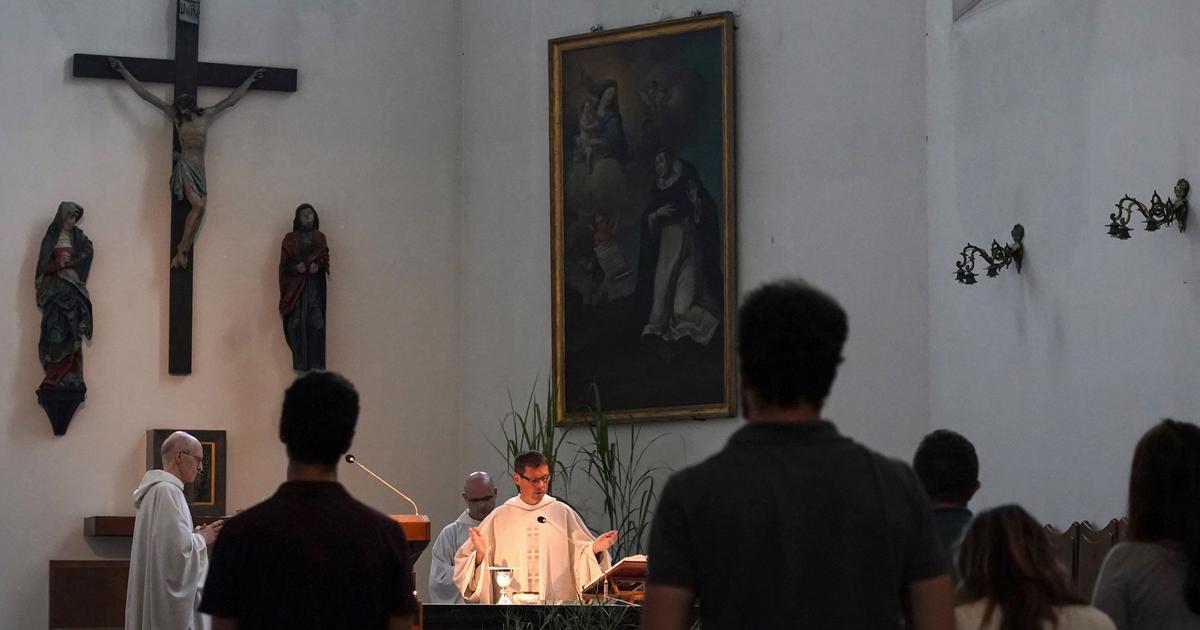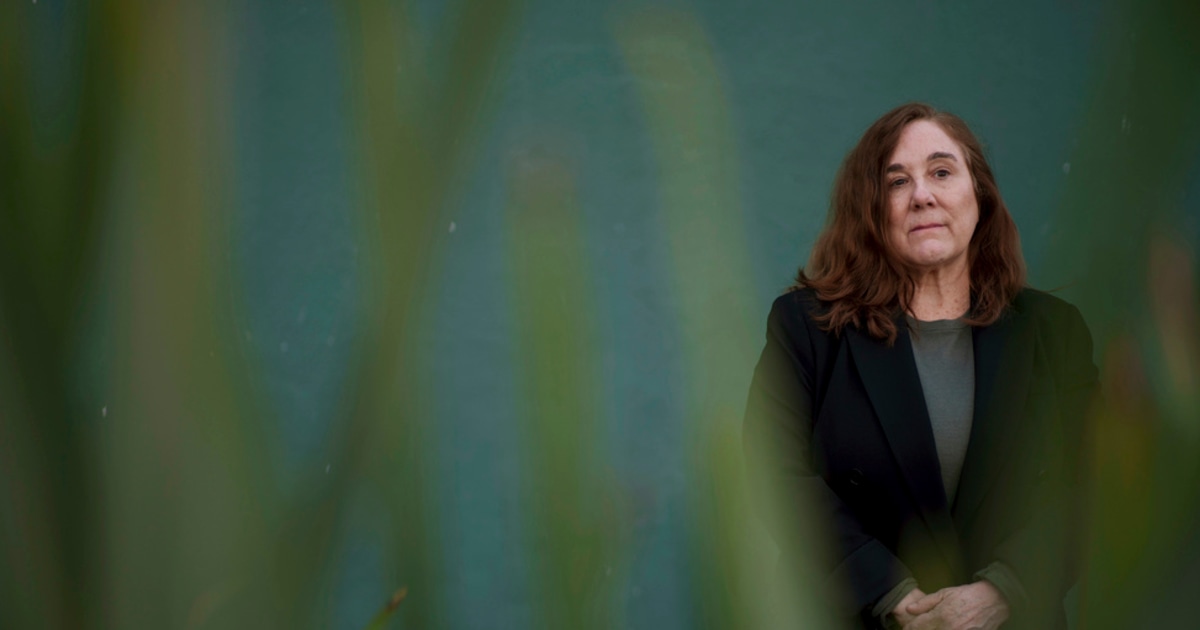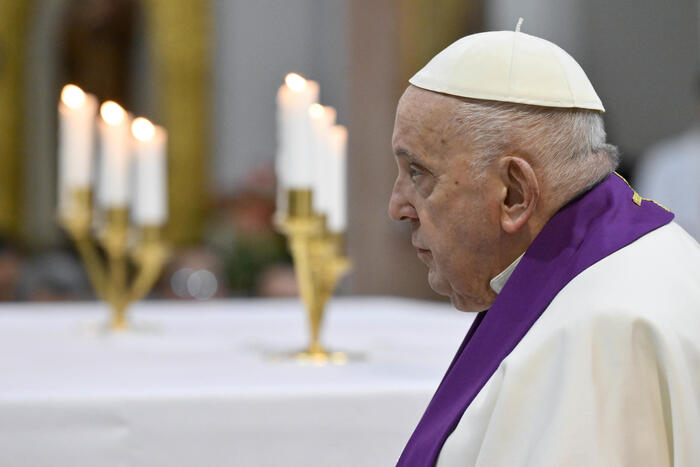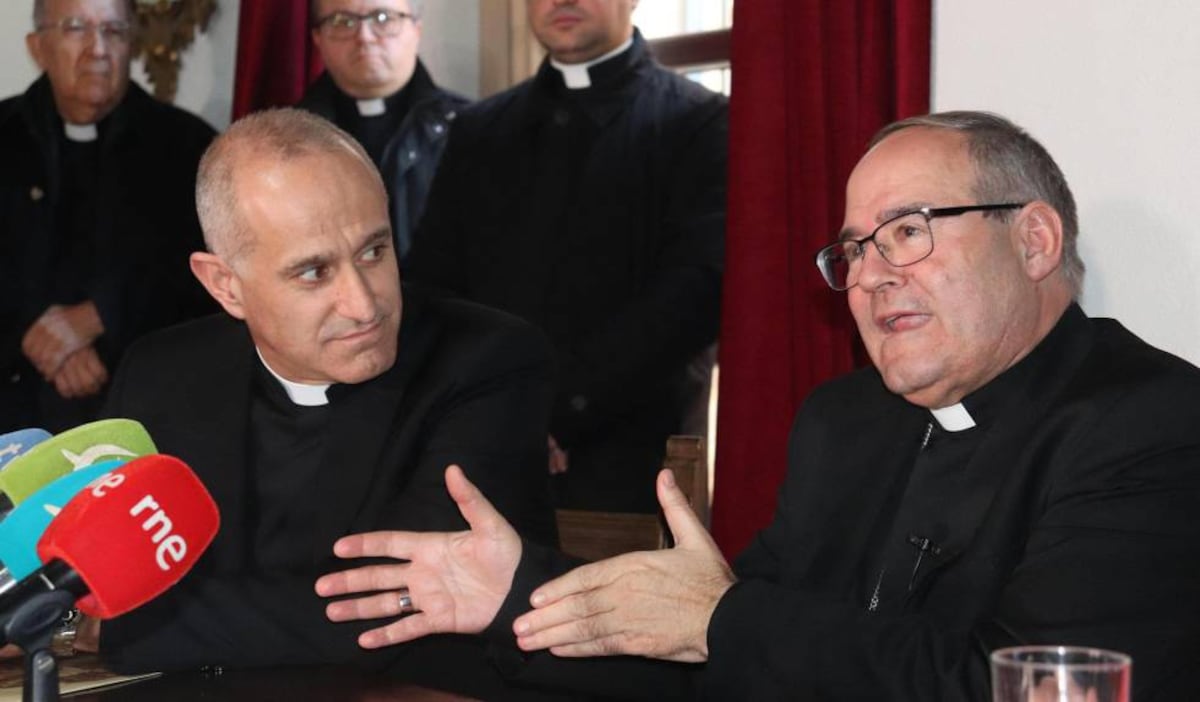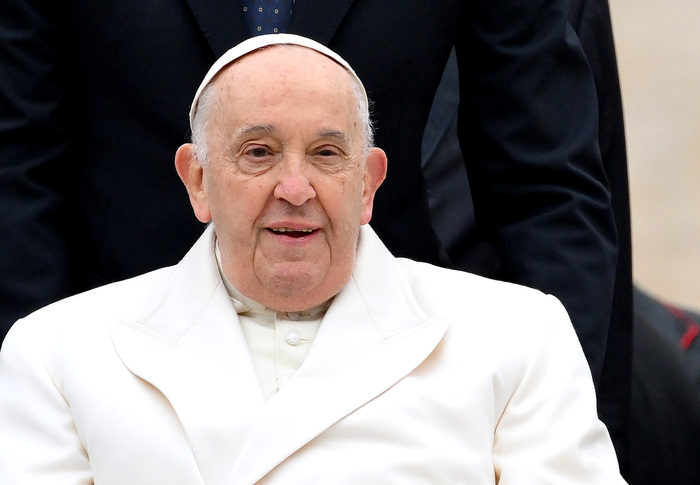Sometimes a familiar scent or song unlocks repressed memories of abuse suffered as a child.
In 2019, the smell of wood from an old house moved the Argentine Sergio Decuyper more than 30 years ago, to the home of his grandparents in Paraná, in the Argentine province of Entre Ríos.
He then remembered that his priest uncle had raped him when he was five years old.
Sometimes the memory never went away, but was covered by layers of guilt, only broken by listening to another victim.
Daniel Vera decided to tell about the abuse he had suffered as a teenager when he saw the actress Thelma Fardín recount how she had been raped by her cast partner Juan Darthés.
By sharing their stories, many Argentine victims discovered that a similar modus operandi existed within the Catholic Church to cover up pedophile priests.
“The more cases come out, the easier it is to take on your own.
You see and listen to others and are encouraged to speak because you have a lot of support,” says Vera, a member of the Network. As a teenager, this sociology professor wanted to be a priest and missionary in Africa, until the priest Walter Avanzini crossed paths with him. their way.
Coming from a very Catholic family, Vera lived in the Cordoba town of Canals with her parents and on Sundays she traveled to Río Cuarto to visit her brother who was studying at the Major Seminary.
There she met Avanzini, who was a doctor as well as a priest.
More information
EL PAÍS opens an email to denounce cases of pederasty in the Church in Latin America
In 1986 Vera was 17 years old and Avanzini invited him to go on a youth mission that was done as preparation prior to entering the seminary.
"One day he came into the bathroom when I was taking a shower to get me the towel and asked if my penis didn't hurt when it got erect because my foreskin was too long," he recounts.
He seemed strange to her but she didn't give it much importance.
She took it as "a medical comment from someone who was his friend."
One of the following nights he asked her to come to his room to tell him how he was doing.
“He told me to lie down with him for a while.
There she began to caress me.
She asked me to show her my penis because of the foreskin and he kissed me on the mouth.
I don't know how I left her room”, says Vera, at 53 years old, from the house in Córdoba that she shares with her partner and her two children.
At that time she had no sexual experience nor did she pretend to have one, given her religious vocation.
The abuse was repeated, in similar terms, a second night.
"He knew he was wrong because he told me, 'When you confess, don't say he went with me.'
She denied what happened as long as possible.
Later, she made the decision to denounce.
The Church filed her canonical complaint in 2020 and now awaits the criminal complaint to prosper.
"The skills of the accused show that the abusers are not sick but healthy people, who act from a place of power, with a lot of manipulation, and are aware of what they do, of the damage they cause, even if they do not admit it," says the psychologist Liliana Rodríguez, one of the founders of the Network. Rodríguez also explains that the perpetrators tend to choose vulnerable children and gradually gain their trust, sometimes also that of their family, which makes it even more difficult for them to resist the attacks. abuses.
In the case of Decuyper, it was a direct relative.
“The abuse was in 1982. In the bathroom of my paternal grandparents' house, one weekend when my uncle came to visit.
I was five years old, he was already a priest, he worked in the Paraná seminary”, he recalls by video call from the Spanish city of Vitoria, where he has lived since 2002. This 44-year-old man assures that his brain erased what happened for three decades, although the abuse left sequels such as migraines and affective disorders.
“I had a recurring dream.
I was five years old and it reached the bathroom door.
Everything vanished there,” says Decuyper.
In 2019, the smell of wood from a house where he had gone to spend a few days made him suddenly peek at the horror that he had forgotten on the other side of the door.
He wrote a letter to the Pope and he called him on the phone and then received him at the Vatican.
He says that Francisco asked him to forgive.
He told him that he had to trust the bishop of Paraná and not talk to journalists because they were "hypocrites."
When he confessed to her that he had realized that he was homosexual and was thinking about getting a divorce, the Pope objected, claiming that his "mission was marriage" and he had to stay married.
Francisco's words, far from comforting him, caused him great pain.
"We speak of a systematic plan because we see that the Church everywhere uses the same cover-up mechanisms: it hides and transfers the denounced priests," underlines the psychologist of the Network, who highlights that among the objectives of the group is the separation of the Church of the Argentine State.
For decades, pedophile priests were changed dioceses and sometimes transferred to another country.
This is how the Italian Nicola Corradi arrived in South America in 2005.
Despite the complaints against him in Verona, his hometown, in Argentina they left him free to attack new victims at the Provolo Institute for deaf children in Mendoza.
This priest was 84 years old when he was arrested and convicted of "sexual abuse with aggravated carnal access."
Two years ago, the pope made it mandatory to open a canonical investigation into every complaint of abuse filed.
The Argentine victims, however, maintain that this order is often breached.
Decuyper has not yet had a response to the complaint he filed in Rome more than a year and a half ago.
He has also not been able to obtain justice before the courts, which last September filed the case for prescription of the crime.
Escraches to priests
With both avenues closed, some opt for public denunciation.
"In Argentina there is a great tradition of collective organizational forms and we use that knowledge to combat pederasty within the Catholic Church," says Rodríguez.
The Ecclesiastical Abuse Survivors Network offers support and legal advice to those who come to share their experience, but also encourages them to fight against the impunity of priest abusers.
Before the start of each trial they get in touch with local organizations to mobilize in front of the courts in support of the victims, they spread photographs of the priests denounced for abuses and they scratch them with posters pasted on their houses, just as relatives of victims of the dictatorship with the repressors before them.
In Argentina, social and media pressure has contributed to changing laws, accelerating causes that are not advancing, and making trials visible that encourage other victims to step forward and break the silence.
In 2015, in the midst of the commotion caused by the open case against the priest Justo José Ilarraz, the Argentine Congress approved extending the statute of limitations for this crime: the clock starts counting when the victim is of legal age and files a complaint, not before.
Hernán Rausch, one of Ilarraz's victims, says that he took courage to speak out when he learned of the arrest of popular priest Julio César Grassi.
“For me the trigger was Grassi.
My mother, who is very devout, was watching it on TV and she said that it could not be that a priest does these things, imagine what I felt because they did them to me, ”says Hernán Rausch.
Grassi, head of the Felices los Niños Foundation, was sentenced to 15 years in prison for sexual abuse in 2009, in a hinge ruling that led to many other complaints.
“Until I was able to speak, what happened was killing me, suffocating me,” Rausch remembers.
When she told his mother about it and later made it public, she realized that the sexual abuse she perpetrated against him had also been repeated by Ilarraz with other teenage seminarians.
“Like all pedophiles, he told me: 'I do this with you, I don't do it with another'.
Rausch and six other victims came together to file a criminal complaint and in 2018 the Justice agreed with them: the abuser was sentenced to 25 years in prison.
According to the testimonies presented in court, Ilarraz, who was a tutor at the Paraná seminary, was looking for excuses to stay alone with them and there grope them, kiss them and try to penetrate them due to the panic and bewilderment of his pupils, who were between 12 and 14 years old. years, and for whom the abuser was the highest authority figure in the seminary.
The court considered the accusations proven.
The victims of Ilarraz have been waiting for more than two years for the Supreme Court of Argentina to rule on the challenge filed by the defense.
In addition, after that conviction and the court ruling also to 25 years in prison against the priest of Colombian origin Juan Diego Escobar Gaviria, the victims are now seeking to condemn those who they consider their accessories, the Archbishop of Paraná Juan Alberto Puiggari, and who occupied that position between 1983 and 2003, Estanislao Karlic.
"When Bergoglio was elected Pope I cried with emotion, I thought that Justice was finally going to be done, but later that illusion was extinguished because it has not been like that," says Rausch.
Unlike other victims, such as Vera, Rausch maintains his Catholic faith, for which he recognizes the valuable contribution of the Network but remains on the sidelines.
From inside or outside this group, the complainants agree on a double objective: to obtain justice and prevent other children from suffering the abuses that they could not prevent.
"I want no one to go through what I went through," Vera reiterates.
“The first step is to speak.
When you speak, the pain does not go away, but you can live, live with capital letters, because you are a survivor and you have faced what you are, ”she assures.
If you know of any case of sexual abuse in the Church in Latin America that has not seen the light of day, write to us with your complaint at
abusesamerica@elpais.es
.
If it is a case in Spain, write to us at
abuses@elpais.es
.
Subscribe here to the EL PAÍS América
newsletter
and receive all the key information on current affairs in the region.

